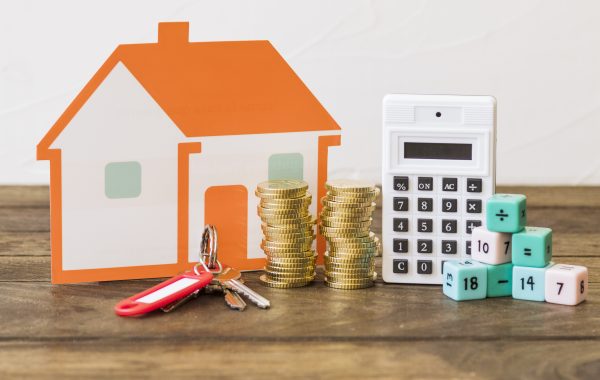
Decoding the 5% VAT on New Homes in Ghana: What Buyers Need to Know
Given the changing real estate market in Ghana, it is crucial to understand the tax implications involved in buying property. The reintroduction of Value Added Tax (VAT) on real estate transactions significantly impacts buyers, especially those interested in new builds from estate developers.
This guide breaks down everything you need to know about the 5% VAT on new homes in Ghana, helping you make informed decisions when planning your property investment.
Understanding Ghana’s Real Estate VAT Structure
Ghana’s VAT system for real estate underwent significant changes in 2024, with the reintroduction of VAT on property transactions. This move, while designed to increase government revenue, includes differentiated rates to encourage continued growth in the housing sector.
For prospective homebuyers, the most relevant aspect is the 5% VAT rate that applies specifically to houses or apartments supplied directly by estate developers. This reduced rate (compared to the standard 15% applied to other property transactions) represents the government’s effort to keep newly developed residential properties more accessible.
It’s important to note that in addition to the 5% VAT, there’s also a 1% COVID-19 levy applied to the same property value, effectively making the total tax 6% for new homes purchased from developers.
What Property Transactions Qualify for the 5% VAT Rate?
The 5% VAT rate specifically applies to:
- Houses or apartments supplied directly by an estate developer
- Rental properties provided by estate developers
This reduced rate is particularly beneficial for buyers looking at developments like Eden Heights, where luxury apartments and penthouses are offered directly by the developer. The 5% rate represents a significant saving compared to the 15% VAT rate applied to other real estate transactions such as:
- Land sold for purposes other than agriculture or a dwelling
- Civil engineering works, landscaping, or professional services
How Is the 5% VAT Calculated on Your Purchase?
Understanding how the 5% VAT (plus 1% COVID-19 levy) affects your bottom line is crucial when budgeting for your new home. Here’s a practical example:
Let’s consider purchasing a Three Bedroom Standard apartment at Eden Heights:
- Base property price (before tax): GHS 1,000,000
- VAT (5%): GHS 50,000
- COVID-19 Levy (1%): GHS 10,000
- Total purchase price: GHS 1,060,000
This example illustrates how the 6% total tax (5% VAT + 1% COVID-19 levy) adds GHS 60,000 to the cost of a GHS 1,000,000 property.
Is VAT Included in the Advertised Price?
One of the most common sources of confusion for property buyers is whether the advertised price includes VAT or not. In Ghana’s real estate market, this varies by developer and should never be assumed. There are typically two approaches:
1. VAT Added on Top
Some developers advertise the base price and then add VAT and the COVID-19 levy as separate line items at closing. While this provides transparency, it means the final amount you pay will be higher than the advertised price.
2. VAT Included in the Listed Price
Other developers incorporate all taxes into their advertised price, presenting you with an all-inclusive figure. While convenient, this approach can sometimes mask the tax components of your purchase.
Pro Tip: Always explicitly ask the question: “Does this price include VAT?” before proceeding with any property transaction. This single question can prevent budget surprises and ensure you’re comparing properties on an equal basis.
VAT Implications for Different Types of Properties at Eden Heights
Eden Heights offers various residential options, from two-bedroom apartments to luxurious penthouses. Here’s how the 5% VAT might apply to different property types based on hypothetical prices:
| Property Type | Base Price (GHS) | VAT (5%) | COVID-19 Levy (1%) | Total Price |
| Two Bedroom | 800,000 | 40,000 | 8,000 | 848,000 |
| Three Bedroom | 1,000,000 | 50,000 | 10,000 | 1,060,000 |
| Four Bedroom | 1,200,000 | 60,000 | 12,000 | 1,272,000 |
| Penthouse | 1,800,000 | 90,000 | 18,000 | 1,908,000 |
Note: These prices are hypothetical and used for illustration purposes only. Contact Eden Heights directly for current pricing.
Who Really Pays the VAT?
While buyers ultimately bear the economic burden of the VAT in most cases, it’s important to understand that legally, it’s the seller or developer who is responsible for collecting and remitting the VAT to the Ghana Revenue Authority (GRA).
This distinction matters because:
- The developer must issue a VAT invoice for your purchase
- The developer is legally responsible for ensuring the correct VAT rate is applied
- Any VAT disputes are primarily between the developer and the GRA
Special Considerations for Diaspora Buyers
If you’re a Ghanaian living abroad or a foreign national interested in purchasing property in Ghana, the 5% VAT rate (plus 1% COVID-19 levy) applies equally to your purchase. There are no special exemptions based on residency or nationality.
However, diaspora buyers should be particularly vigilant about confirming whether quoted prices include taxes, as unexpected tax additions can significantly impact international financing arrangements and budget planning.
Strategic Timing: VAT Considerations
For strategic buyers, understanding the VAT implications can influence when and how you make your purchase:
- Pre-construction vs. Completed Units: In some cases, developers may have different pricing structures for pre-construction purchases versus completed units. Confirm how VAT is applied in both scenarios.
- Payment Structures: If making instalment payments, clarify whether VAT is applied to each instalment or calculated on the total purchase price.
- Promotional Periods: Some developers occasionally offer to absorb part or all of the VAT during promotional periods, effectively providing a 5-6% discount.
Comparing Developer Purchases vs. Other Real Estate Transactions
To highlight the tax advantage of buying directly from developers like Eden Heights, let’s compare the VAT implications of different property transactions:
| Transaction Type | VAT Rate | COVID-19 Levy | Total Tax |
| New home from a developer | 5% | 1% | 6% |
| Land purchase (non-agricultural) | 15% | 1% | 16% |
| Engaging contractors for building | 15% | 1% | 16% |
This comparison clearly shows the tax efficiency of purchasing directly from an estate developer, with potential savings of up to 10% compared to alternative approaches to property acquisition.
Benefits of the 5% VAT Rate for Luxury Developments
The reduced 5% VAT rate is particularly beneficial when considering luxury developments like Eden Heights, where the absolute tax savings can be substantial. For instance:
- On a luxury Penthouse Deluxe with a total area of 356.58 sqm, the difference between paying 6% vs 16% total tax could represent significant savings
- These savings can often be redirected toward upgrades, furnishings, or additional investment opportunities
Practical Tips for VAT-Smart Property Buying
- Get it in writing: Request written confirmation of whether the quoted price includes or excludes VAT.
- Budget properly: Always factor in the additional 6% when calculating your total budget.
- Ask for a VAT breakdown: Request a detailed breakdown showing the base price, VAT amount, and COVID-19 levy separately.
- Verify developer status: Ensure your developer is properly registered with the GRA for VAT purposes.
- Keep your VAT invoice: This document is important for your records and potential future tax purposes.
Conclusion
Understanding the 5% VAT rate on new homes purchased from estate developers in Ghana is essential for making informed property investment decisions. While the additional 6% tax (including the COVID-19 levy) represents an added cost, it’s significantly lower than the 16% total tax applied to other real estate transactions.
For buyers considering luxury developments like Eden Heights, with its prime location near West Hills Mall and comprehensive amenities, the reduced VAT rate makes developer-built properties particularly attractive from a tax perspective. When this tax advantage is combined with the convenience, quality, and facilities offered by established developers, the value proposition becomes even more compelling.
Always remember to verify whether advertised prices include or exclude VAT, and factor this into your budgeting and comparison process. With the right knowledge and approach, navigating Ghana’s real estate VAT system can be straightforward, allowing you to focus on finding your perfect home.
Frequently Asked Questions
1. Does the 5% VAT rate apply to all properties at Eden Heights?
Yes, as a direct estate developer, all residential properties offered by Eden Heights qualify for the 5% VAT rate (plus 1% COVID-19 levy).
2. Can I claim back the VAT paid on my property purchase?
Generally, VAT on residential property purchases is not refundable for individual buyers. However, if you’re purchasing for business purposes, consult with a tax professional about potential VAT input credit.
3. If I’m buying from abroad, do I still need to pay the 5% VAT?
Yes, the 5% VAT rate (plus 1% COVID-19 levy) applies regardless of where the buyer resides or their nationality.
4. How do I verify that the correct VAT rate has been applied?
Request a proper VAT invoice that clearly shows the 5% VAT calculation and the 1% COVID-19 levy separately.
5. Do renovation or furnishing services provided by the developer also qualify for the 5% VAT rate?
No, additional services like custom renovations, furnishing, or landscaping typically fall under the standard 15% VAT rate plus 1% COVID-19 levy.
Ready to explore luxury living with transparent pricing and expert guidance on VAT and other property matters? Contact Eden Heights today to schedule a viewing of our premium residential offerings, conveniently located near West Hills Mall in Accra. Our team is ready to assist you with all aspects of your property investment journey.


